#old school ttrpg
Explore tagged Tumblr posts
Text
Genuine question with no snark intended toward either actual play as an entertainment medium or players who like to play their TTRPGs like this:
For those who were playing TTRPGs over a decade ago, before the rise of actual play as a major influence in the TTRPG world, was trying to be funny and zany a major part of play back then?
I've only been into TTRPGs as a direct result of actual play, only within the last 5 years, and I see (on reddit, tumblr, everywhere I see people talking about their own TTRPG campaigns) a lot of emphasis on funny moments, antics, totally off-the-wall plans, joke characters, etc. I'm wondering how much of that emphasis comes from the fact that comedians are pretty foundational (as far as I can tell) to the medium of actual play: Dimension 20, The Adventure Zone, HarmonQuest, among others. Are those things as correlated as I think they are?
Of course, funny people have always existed, as has the emphasis on fun in TTRPGs. So this might be totally a lack of perspective on my part!
6 notes
·
View notes
Text
here's a series i worked on last year, some of them are still some of my favourite work
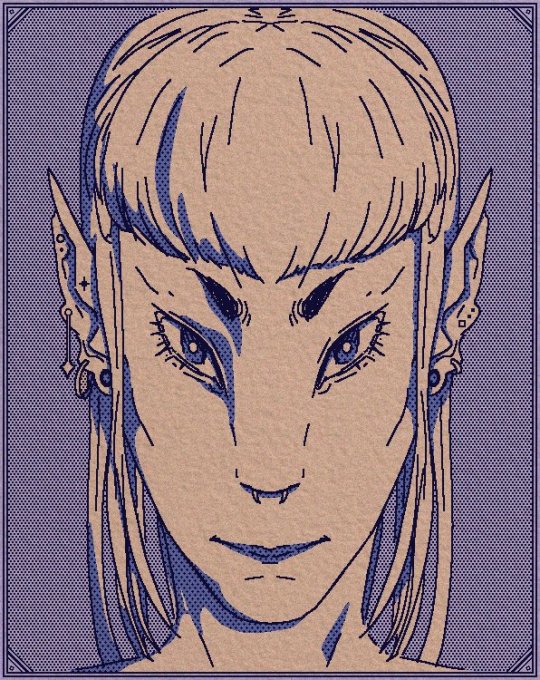
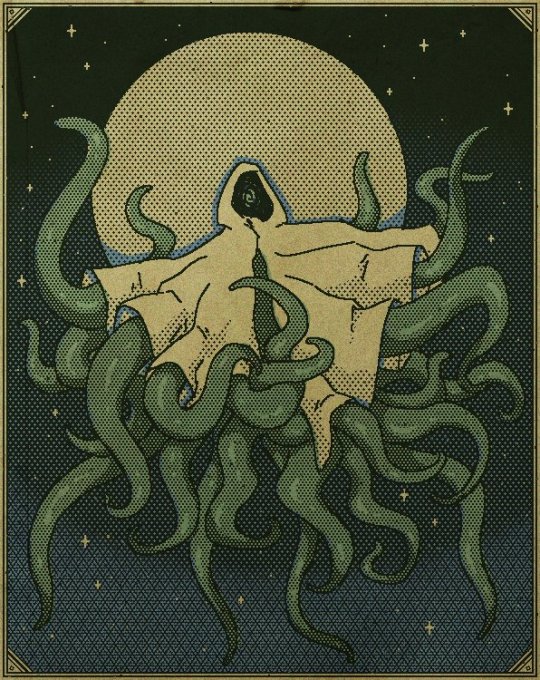
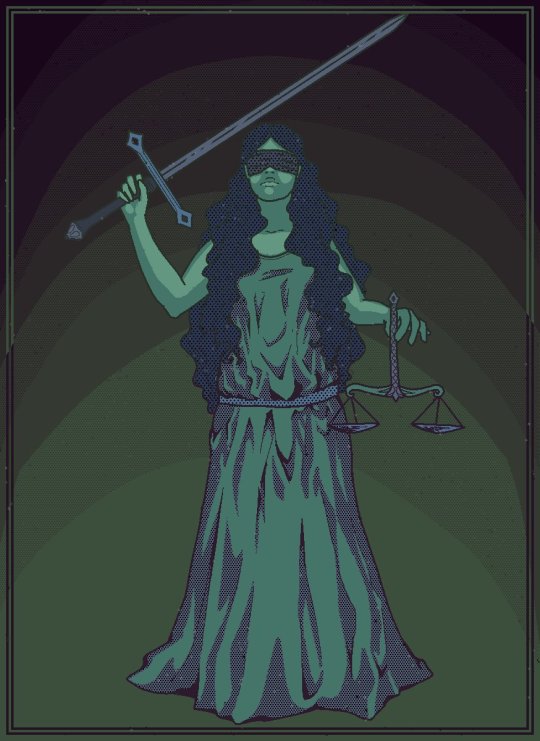

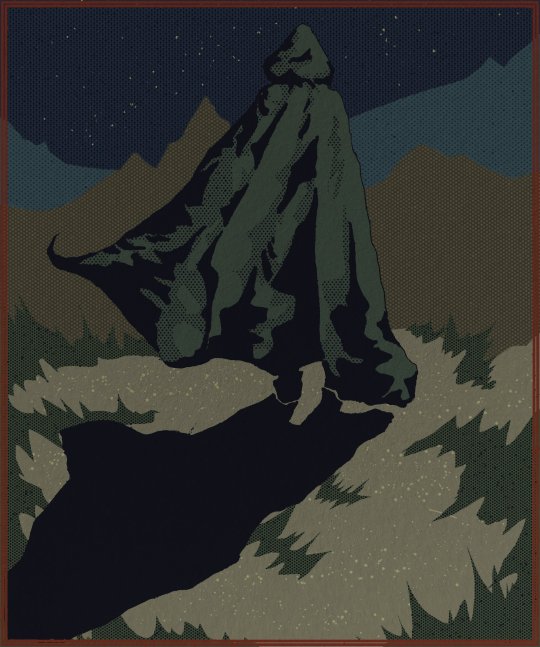

fantasy creatures, people and monsters. a little bit of adventure. always a lot of adveniences.
#artists on tumblr#digital art#osr#old school ttrpg#ttrpg#fantasy art#dark fantasy#dungeoncore#eldrich horror#medieval fantasy
18 notes
·
View notes
Text
These are available in August!
#stamp collecting#stamps#usps#ad&d 1e#dungeons and dragons#ttrpg#d&d#old school renaissance#osr#ad&d#dnd5e#dnd#dnd1e#d&d 5th edition#d&d 5e#collectibles#d&d art#dnd art
602 notes
·
View notes
Text
In reading Marcia's review of her experience with Shadowdark, I contemplated on how I run my own OSE games. This is also fresh on my mind because I am running Miranda Elkins' fantastic Nightwick. Its all about distilling things down to the interesting choice and eliminating the non-interesting one.
Basic Equipment: I am thinking about charging my players a flat rate for all basic dungeoneering equipment that is rolled into weekly expenses-- so 7sp a week for expenses plus ~3-5sp for pick of equipment
Not interesting: Cost of equipment, especially down to coppers
Interesting: Scarcity (what if there is no 50' rope this week?) and how many slots PC dedicates to basic equipment
Light: Due to torch cost and number per slot, it is easy to carry a lot of torches.
Not interesting: Carrying enough light to last 12-24 turns- easily done
Interesting: When torches extinguish-- like in the middle of a fight or when the goblins you are negotiating with get mad; how many hands in the party are occupied by torches
This is why I prefer to use the overloaded encounter die to simulate inopportune moments when a torch is snuffed out- gust of wind, dripping slime, bucket of sand thrown by a sneaky goblin. And with regards to hands, holding a torch potentially lowers AC, removes a weapon, or makes spell casting delayed (need both hands). One saving grace: torches are an improvised weapon that do 1d4 dmg and are on fire.
Stuck Doors: I now commonly interpret the 2-in-6 chance as a basic surprise roll. If they players fail it, they make a loud noise and alert anything on the other side of the door, but open it next round.
Not interesting: Rolling a d6 over and over again to see if PCs finally break down a door
Interesting: Seeing if PC get surprise on whatever is on the otherside; if additional equipment is brought to deal with doors
I usually like the idea that a crowbar allows and additional 1d6 rolled per individual with one.
Rations: This is similar to the situation with light, its easy to carry enough food/water for 2-4 hours which is more likely the time frame of a dungeon delve-- not a camping trip.
Not interesting: Tracking both food and water separately for nominal circumstances
Interesting: How many PCs carry rations; will rations be used for other things (like distracting monsters) or saved to avoid fatigue
For me the nature of rations are both food and water abstracted. So if a player want to use food as a distraction, mark off 1 rations. If a player wants to douse a small fire, use 2 rations as you frantically empty out a water skin and try to put out the fire consuming the spell book.
Secret Doors & Traps: Two dungeon features that are opposite sides of the same coin. Really I think Chris McDowall has written some of the best bits on this that boil down to "traps are puzzles" and not really "gotcha".
Not interesting: Situations where the PCs have to pick the exact right spot and roll a 1-2 in 6
Interesting: Adding in environmental clues or other sources of information that allows discovery by players investigating the fictional environment
Now, I will keep both rolls as a back-up for either PCs not having a good idea and/or a back-up for perhaps me being unable to convey the fictional environment properly in the moment.
Weapons: I've yet to find a really good way to do weapons simply outside of 1d6 damage for all types. I don't mind BX's variable weapon damage. And I do like some old rulesets sorta "first strike" if your weapon is larger than an opponents other wise smaller, lighter weapons strike first in subsequent arounds.
So here is what I have got so far: Using a weapon two-handed is a +1 to damage, using an off-hand weapon is +1 to-hit, and a shield is of course +1 AC. I do like that fighters with bows can shoot twice if they did not move and the "cleave" ability.
Not interesting: Weapon factors that are so extensive they require a separate rules discussion, trigger player obsession, and/or orient the whole of gameplay to combat
Interesting: What PCs chose to do with their hands: more armor, more weapons, or more light
So that is it for now, if you'd like to see more of my house rules here is my post on the Serpent Song Hymnal. I hope to have a sorta player version created sometime soon but I'm still trying to dial-in what my go-to "french vanilla" D&D is like.
#ttrpg#ttrpg community#indie ttrpg#OsR#old school renaissance#OSE#old school essentials#Game philosophy
159 notes
·
View notes
Text
how to run an OSR game
a while back i made this post to help people who were interested in OSR games but didn't know where to start, explaining the general design philosophy and going over a bunch of different OSR rulesets you can run a game with. so this is a follow-up post about how to actually run these (especially bc not all of them have much actual GM guidance)
note this is a highly opinionated post and some people from the more meatgrinder-y end of the OSR might take issue with this. but this is advice that works extremely well for my games.
how to prep situations and not plots
this is good advice for most games but OSR especially because OSR gameplay is so driven by player scheming: don't ever include "and then the players will..." in your prep, because you do not know what the players will do.
if your prepped scenario hinges on the players taking a specific action or the whole thing falls apart, you're digging your own grave as the GM. trying to account for every action the players can take is a trap, because players are creative and clever and their options are only limited by their ideas. that's the game.
so "prep situations, not plots" has become popular advice in TTRPG communities, especially OSR circles. but how do you actually do that
the most important elements of prep you want to figure out are:
what do all the NPCs involved in this scenario want? what social levers (wants, fears, habits, allegiances, guilty pleasures, relationships) do they have that the players can pull?
what will happen if the PCs never interfere? what conflicts and schemes are brewing in the background?
what locations are there to explore? who and what is inside them, what dangers and treasures are inside?
the best prep is stuff you can't improvise, or stuff that's unsatisfying when improvised. you should probably know monster stats ahead of time, know the layout of dungeons, that sort of thing. elements relevant to challenging the players are important to prep.
stop rolling for everything
coming from nearly any other TTRPG to an OSR game, your instinct when a player says "i want to do X" is "okay, make an X roll" through a skill system or a pbta move or something.
if you do this in an OSR game, you run into problems.
player characters aren't very strong. they have single-digit hit points, few if any class abilities, and whether they're carrying a crowbar, a grappling hook, a lantern, etc. is as impactful as their choice of class.
this is because the game is about using your head more than using your character sheet - the sheet just lists tools to apply your creative thinking to. scheming and managing your resources is the game.
and this means if a player has a clever idea, you should almost never reward them with a die roll to see if they succeed. a skill check is just a random chance of failure. instead most actions should succeed or fail automatically.
here's a good checklist to determine whether something succeeds:
is it something a normal, untrained person could do? if yes, you succeed.
could a normal person do it with the right tools, training and/or time to work? if yes, you succeed if you have any of those things.
if you don't have any of those, you can't. find another approach or get ahold of those conditions for success.
die rolls are for resolving uncertainty and risk. picture a version of 5e where there are no ability checks, only saving throws - dice you roll when something's gone wrong and you're in danger.
which leads into the next point...
communicating information
one of the worst sins of roll-based task resolution is when it's used to determine perception. players making informed decisions is the heart of the game, and they can't do that without information.
give information freely. if your character could know it, they probably do. try to do this too much. never gate information behind a die roll, especially the PC's surroundings.
part of this is always informing the player what is at stake. if a player's in a dangerous enough situation that success comes down to a die roll, you must let them know that before they opt into making that roll, and what the consequences for failure are.
OSR games are about risk management, so tell your players what is at risk when they make those decisions.
entering combat
combat is one of the most dangerous things in an OSR game - it's unpredictable, lethal, and entering it is always a big decision.
if you're coming from a game like 5e, often your first instinct when an encounter occurs is, "roll initiative!" but this is a mistake. you always, even when combat is about to start, ask players for their approach. do they fight? flee? negotiate? surrender?
because combat is so risky, forcing players into it unprompted fundamentally changes the dynamic of your campaign. keep in mind, once combat starts, you don't get any input between rolling initiative and taking your turn. your fate is up to the dice - your tactics matter, sure, but they can't save you from losing initiative, being crit, and dying from bad luck.
if players willingly choose combat as their approach, they should know the risks and what they're getting into. sometimes combat is the best way to achieve your goals, so it'll still happen.
#osr#nsr#d&d#ttrpg#also OSR stands for “old-school renaissance” since someone brought up in my last post that i never clarified that
43 notes
·
View notes
Text
Milk Bar: sci-fi OSR roleplaying in post-Communist Poland

Bełchatów exemplifies what the paypigs called Total Fucking Vertical Integration. They dug out coal from a hole in the ground 300m deep and 10km across, wheeled it 17km across a field, and burned it to produce 50TWh of energy a year. The city, this city, sprang up around it to keep those functions and those conveyor belts alive at any cost; total fucking vertical integration.
Eventually, the coal ran out. The Soviets found a more lucrative source of energy in the south and they would wheel it back here to justify keeping hundreds of thousands of people in the middle of nowhere. An explosion at the plant sent them reeling, leaving only you—the Communards—to pick up the pieces.

🧑🔬sci-fi OSR roleplaying in the vein of Cairn and Mothership 🇵🇱 set in an alternate timeline, post-Soviet Communist Poland 🏠 unique progression system tied to basebuilding 🥟 pierogi
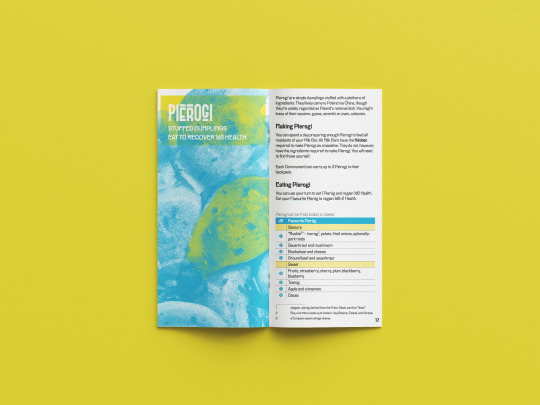
Coming soon! Follow the project on Kickstarter to get updates 👀
#rpg#ttrpg#ttrpg community#poland#pierogi#cairn#osr#indie ttrpg#mothership rpg#old school renaissance#communism
100 notes
·
View notes
Text
More Riverlands thoughts
So as I slowly work on more Riverlands Stuff (hexcrawl, rule conversions, etc), general survey - which of the original Riverlands backgrounds (excluding the Empire and Further Afield backgrounds for right this second), would you want to see expanded into a full Archetype (basically a class in my Ostrichmonkey Hack ruleset). Not all of them necessarily would work as archetypes, but I'm interested to see which ones might resonate with people.
Basically based entirely on vibes, pick your favorite, but feel free to ask for more info on any in the notes.
#ttrpg#indie ttrpg#ttrpg design#into the riverlands#also planning on converting a handful into other old school formatted classes#the OSE otterfolk is basically done but i also want to do the trickster-poet in that format#realized that basically all the backgrounds are more or less cairn compatible too#aside from some magic related stuff
22 notes
·
View notes
Text
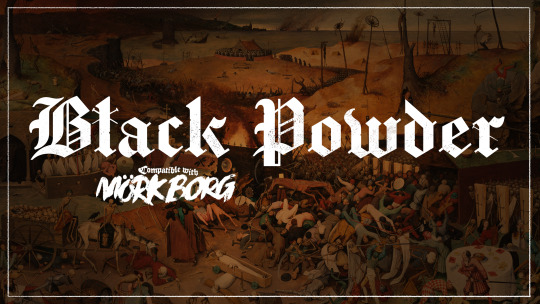
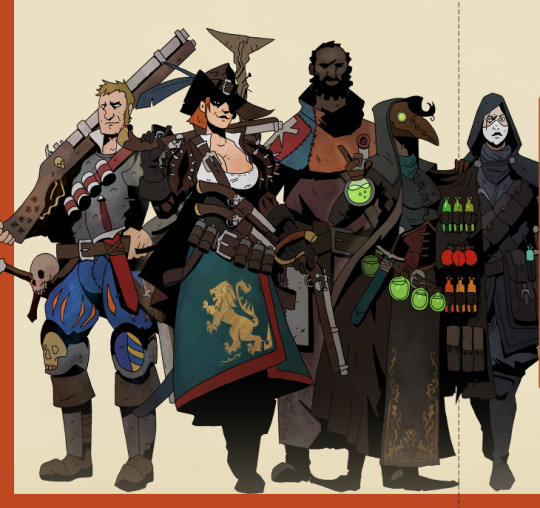


So for the last year or so i have been working on a OSR style TTRPG called Black Powder based on the Mörk Borg system.
Its a fast paced, explosive game filled with witch hunters, wars of religion, demons and witchcraft.
if you want to stay up to date on the project and its production you can follow my substack for free!
#illustration#ben tobitt#OSR#ttrpg#old school renaissance#tabletop rpg#pen and paper rpg#rpg#mordheim
302 notes
·
View notes
Text
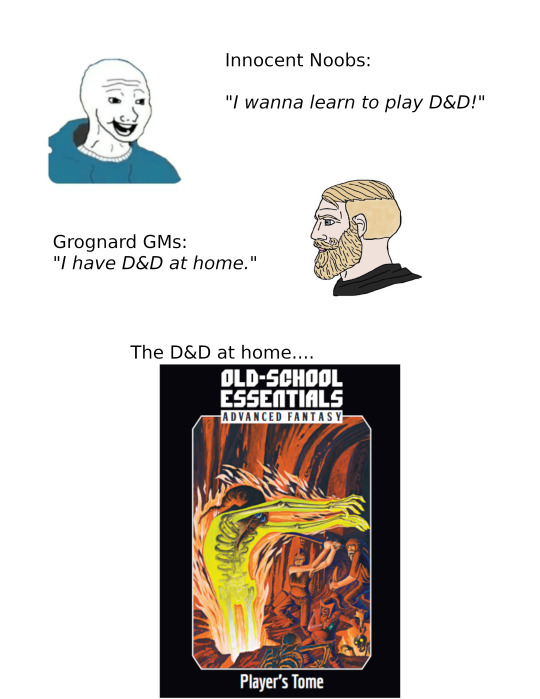
It's me. I am grognard GM.
#ttrpg#dnd5e#dungeon master#startplaying#game master#dungeons and dragons#dnd memes#osr#old school essentials#old school renaissance#english vtuber#vtuber#fantasy#grognard#it is me
22 notes
·
View notes
Text
youtube
I had an epiphany while watching Matt Colville talk about D&D 5e vs. other RPGs and classic D&D. Dungeon Meshi isn't just inspired by D&D, it's specifically older editions of D&D.
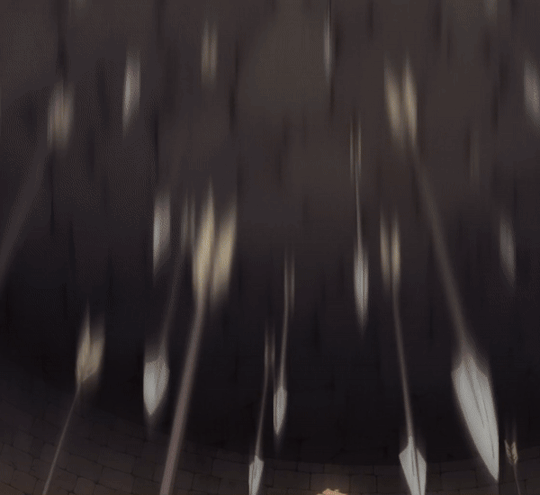
It's very heavy on exploration, problem-solving, and survival-horror, and very light on the magic powers and superhuman warriors. The entire story revolves around a bunch of very weak and mortal people crawling one absolutely massive dungeon full of things that will kill them (even though they're all very experienced). That's why they care so much about dungeon ecology: it allows them to solve otherwise invincible monsters and survive low supplies, just like in an OSR game.
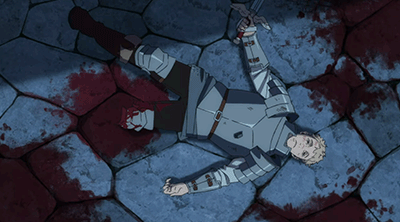
It's basically a cute anime version of Shadowdark. I don't know why it took so long for that to click.
#Matt Colville#D&D#Dungeons and Dragons#TTRPG#roleplaying games#tabletop role playing game#OSR#Old School Renaissance#Dungeon Meshi#Delicious in Dungeon#fantasy#horror#survival horror#anime#Youtube#Shadowdark
31 notes
·
View notes
Text

28 notes
·
View notes
Text

Charm Monster, 4th level Magic-User spell.
This is a piece from 2018 that I still like a lot. I illustrated this for Old School Essentials back when it was called B/X essentials. I newish to digital and definitely overworked the marks haha, but I'm still happy with how it turned out overall.
The illustration accompanied the entry for the Charm Monster spell. Gavin later cropped it to just b the dragon head in the main OSE books. I liked the whole piece! But I was happy to be included haha.
#dnd#d&d#rpg#ttrpg#dragons#digital art#illustration#dragon#wizard#pathfinder#osr#old school essentials
35 notes
·
View notes
Text
At 11 I was introduced to D&D (and TTRPGs) through a March Break camp. I wanted to play more but didn't know where to get the books or have the money for it, so I wrote my own version of D&D based on my memory of play. I wish I still had the rules so that I could publish them as an OSR game.
10 notes
·
View notes
Text

Rescued from Bluesky. @prokopetz
#dungeons and dragons#ttrpg#d&d#d&d memes#ttrpg memes#ad&d 1e#old school renaissance#osr#ad&d#d&d 5e#d&d 5th edition
30 notes
·
View notes
Text
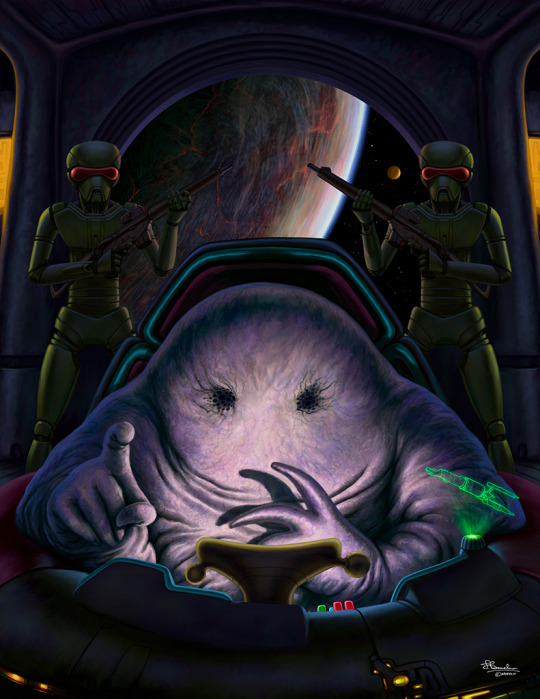
An homage to a Clive Caldwell illustration from The Dramune Run, an adventure for the Star Frontiers rpg. This depicts the Malthar, a dralasite kingpin of crime.
#star frontiers#rpg art#ttrpg art#ttrpg#illustration#sci fi & fantasy#sci fi art#tsr#dralasite#robots#old school renaissance#my artwork
86 notes
·
View notes
Text

Deities & Demigods - Loviatar (goddess of hurt) "Maiden of Pain"
34 notes
·
View notes